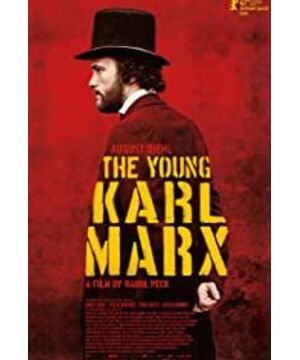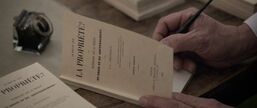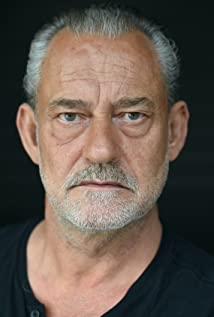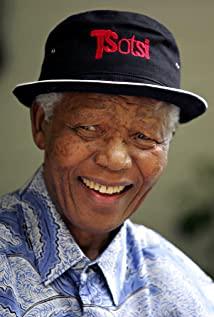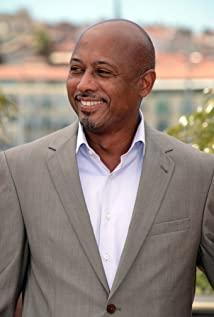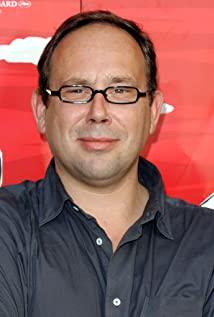In 1848, the Taurus Marx was about to usher in his 30-year-old crisis - he was expelled from various European cities like a plague because he had no source of livelihood and needed the assistance of Engels. But also in the same year, with the encouragement of his close friend Engels and the encouragement of his intimate partner Jenny, he finally wrote the "Communist Manifesto", which was finally published in February 1848, three months before his 30th birthday. . [1] This event can be called "one small step for man, one giant leap for mankind". In 1848, the whole of Europe set off a vigorous revolutionary storm.
The 19th century was a great century for Western civilization. 1848 happened to be in the middle of the 19th century. Before 1848, Europe had already experienced the baptism of the Renaissance Enlightenment Movement, and the "emancipation of the mind" ushered in great development. The vigorous revolutionary storm of 1848 cleared the way for later development, and the wheel of history is still rolling forward.
Revolutionaries are always young, and the lives of romantic poets Byron, Shelley, and Keats came to an abrupt end at the most beautiful twenty or thirty years ago. Only Wordsworth (1770-1850) is the only romantic poet alive, who has hung up his boots for many years after winning the title of "Poet Laureate". Think of Somerset Maugham's rant, "Sorry for Wordsworth's long life, Keats' premature death." The poet of the last era's Romanticism and the revolution of this era's Romanticism were linked by the classical liberal thinker John Stuart Mill, 1806-1873). The first time I knew this name was when I learned about his "Representative Government" and "On Freedom" in the undergraduate international politics class. After many years, I was reading "Mirror and Lamp: Romantic Literary Theory and Critic Tradition" when I majored in comparative literature. When I saw the name again, I used several ways to determine that Mill, who wrote poetry, and Mill, who wrote political science (sometimes translated as Mill), were the same person—romance at a low point in his twenties. Romantic poetry brought comfort, and reading romantic poetry was his lifelong hobby. Mill was a follower of the positivist thinker Comte, who in his later years fell from an early positivist science advocate to a late-life advocate of humane religion. In 1848, Mill wrote " Principles of Political Economy "(Principles of political economy with some of their applications to social philosophy). In his earlier Theory of Poetry, he said that poetry is the "expression or revelation of emotion" and that "poets must be such that their emotions form the associative links, and it is by these links that their sense and spiritual ideas are connected together. [2] In his writings on political science after 1848, he said, "It was originally thought, and vulgarly thought, that the tyranny of the majority is as terrible as any other tyranny, chiefly because it is carried out by measures of public power. But the contemplative has realized that when society itself is a tyrant, that is, when society is collectively above the individual individuals that compose it, the exercise of tyranny is not limited to various forms of tyranny at the hands of political institutions. society can and does carry out its own orders, and if it carries out wrong rather than right orders, or dictates matters that it should not interfere at all, then it is carrying out a more political oppression than any other. For the terrible social tyranny, although it is not often supported by severe punishment, it penetrates deeper into the details of people's lives, and even binds people's hearts themselves, making people more inescapable." [3 ] In 1848 the realist writer Dickens ushered in the birth of his seventh child, and the United Kingdom was in the reign of the prosperous Queen Victoria. The Revolution of 1848 led directly to the establishment of the Second French Republic. The romantic writer Victor Hugo was in a downturn in the 1840s, and he was more of a politician. The realist writer Balzac's life in 1848 has been counted down, and he has to drink 50 cups of coffee every day to continue his life.
Emily Bronte, the author of Wuthering Heights, died at the age of thirty. The year before her death, "Wuthering Heights" and "Jane Eyre" by her sister Charlotte Bronte were published. Few female writers have seen the British imperialism in Jane Austen's works[4] and the Irish famine in Jane Eyre. [5] Even if their life-long activities are limited to their hometown, the breath of the times is still keenly captured by them (later Charlotte Bronte really wrote about the British labor movement in her works). In 1848, French writer Georges Sand had already taken part in political activities. The revolutionary storm of 1848 was not without poets. In 1848, the Parisian workers' armed uprising against the Restoration Dynasty, the poet Baudelaire climbed the barricades and took part in the battle - really the highlight of his life. Thinking of the great writer who was also born in 1821, Flaubert didn't start his creative career until this year in the provinces, and it was only then that Dostoevsky came into contact with the free ideas that came from France to Russia. In 1848, Baudelaire had already been ahead of his peers by more than one position, and later continued to lead the pioneers of modernism. In the future, the extravagance of life and the feeling of emptiness and decadence are not a pity for Baudelaire, who has seen the world. Leaving the center of the revolutionary storm and heading deep into the European hinterland, Austria, which has always been conservative and rich in musicians, has also been noisy this year. The Austrian composer Johann Strauss, who wrote the second national anthem of Austria, "Blue Danube", earned a "revolutionary dividend" this year. When he was only 23 years old, he overthrew the Austrian consul at the instigation of local residents during a concert in Romania. During the revolutionary days in Vienna, he was captain of the National Orchestra conducting the Marseillaise and his own revolutionary marches and revolutionary waltzes - which made his popularity greatly increase after the revolution. 【6】
Farther afield, to the vast and cold Russia. When the February Revolution broke out in France in 1848, the Russian government, on the one hand, immediately sent troops to Hungary to carry out severe suppression at the request of Austria, and on the other hand, strengthened the suppression of ideology at home. Dostoevsky was 27 years old in 1848, and he had already created the small and fresh "White Night" and "Poor Man". Earlier in 1847, he had become interested in utopian socialism, explaining Fourier's thought "so that its beautiful ideals even fascinate our souls", "emotions are triggered by human love, and are not out of balance" [ 7]. A year later, in 1849, he began a ten-year exile in Siberia for opposing the tsar, where his thinking took a major turn and epileptic seizures became more frequent. He previously viewed European civilization as "(France) has given us knowledge, education, and European civilization", while "accompanying civilization, new concepts will emerge." [8] Later, he lived in Europe for four years. "He had to change places with his wife and children, and he began to miss his hometown. He never stopped hating Western Europe, the culture and glory of Paris, the comfortable and comfortable life, German music, the majestic Alps, the bright and deep Swiss lakes...all disgusted him. He believed that the bourgeois civilization of Western Europe was corrupt, decadent, and unconsciously Assimilate him." [9] If you are knocked down by cold or disease in Siberia, you will not see the later "Crime and Punishment", "The Brothers Karamazov"...and there is no way to know his later views on Western European civilization. turned. Probably Tuo's absence in 1848 was another form of presence. After 1848, in 1968, the next Wushen Year of the Monkey, the Western world ushered in another deconstruction carnival.
Notes: [1]: Film "Young Marx" [2]: Abrams: "Mirror and Lamp: Romantic Literary Theory and Tradition of Criticism", Peking University Press [3]: Johann Stuttgart Muller "On Freedom", Guangxi Normal University Press, p. 5. [4]: Said, "Culture and Imperialism", Life, Reading and New Knowledge Sanlian Publishing House, p. 110 [5]: Wang Ping, "The Irish Question in "Jane Eyre", "Foreign Literature Review", 2012, No. 2 [6]: Baidu Encyclopedia [7], [8]: Quoted from [Japanese] Shuntaro Ito / Tadao Umedo / Hoffo Egami , "Theoretical Methods and Cases of Comparative Civilization Research", Shanghai Sanlian Publishing Co., Ltd. [9] ]: Somerset Maugham: "Reading is a Refuge to Carry", Beijing United Publishing Company
View more about The Young Karl Marx reviews


